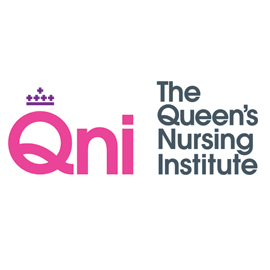Skills for Health has now published the proposed Apprenticeship Standard for SCPHN in England for wide consultation.
Apprenticeships are employer-led work-based learning programmes in a vocational or professional occupational area. Apprenticeships are approved routes through work-based learning and development that lead to a great variety of occupational job roles at a wide range of levels. They are funded by the Apprenticeship Levy paid by employers. Employers can then use the Levy to pay for staff to undertake a programme of learning and development covering fees and an element of salary costs. For education in the health professions, this replaces current funding mechanisms such as bursaries or salary replacement and the payment of fees administered and overseen by Health Education England.
In order for this scheme to put into operation, each Apprenticeship must have an approved Apprenticeship Standard. This specifies a number of high level ‘Core Duties’ broken down into Knowledge, Skills and Behaviours (KSBs). For the SCPHN, this is further broken down into ‘Option 1’: Health Visitor and School Nurse; and ‘Option 2’: Occupational Health Nurse.
Core duties and KSBs are intended to be equally applicable to all SCPHNs, while subsequent duties and KSBs are specific to Option 1 (HV & SN) or Option 2 (OHN).
Apprenticeship Standards are developed to a prescribed format and method overseen by the Institute for Apprenticeships. Each Standard is developed by an employer-led Trailblazer Group.
The Institute of Health Visiting has been actively involved as a member of this Trailblazer group. The iHV has been well-placed to contribute as an independent academic professional body that has also led on the development of a Recommended National Curriculum for Health Visiting and School Nursing over the last two years with all significant stakeholders (this is due for publication later this year). In the last months, these developments have proceeded in parallel and the iHV-led project has provided an evidence and consensus-based source of knowledge to inform our contribution to the Apprenticeship Standard.
Any kind of curriculum or set of Standards reflects a diversity of values, perspectives and priorities as well as the constraints of what can be achieved. It is a collective endeavour. The proposed Standard is now published for wider consultation.
Please take the opportunity to review the Standard and complete the on-line consultation form by 15th October 2018.
Responses to the consultation can be undertaken either as an individual or as an organisation. The iHV will make its own response to the consultation – we are happy to receive comments from iHV members that you would like us to take into account.
It is worth remembering the following points:
- the Apprenticeship Standard applies only to England where the Apprenticeship funding mechanism is being rolled out. It does not apply to the rest of the UK.
- The knowledge, skills and attributes specified will all be assessed by an End Point Assessment (EPO) which is a requirement of the implementation of apprenticeships. (The End Point Assessment is presently under development by the Trailblazer Group).
- The Apprenticeship Standard does not replace NMC Standards of Proficiency or the requirements of the Higher Education Institution that provides SCPHN programmes in partnership with the employer / placement provider.
- Once the Standard is approved (projected to be early 2019) the Apprenticeship Levy will be the only source of funding for SCPHN programmes in England. Health Education England (HEE) has designed a toolkit to help employers navigate their way through the apprenticeship procurement process.
If you have any queries or comments you would like to make to the Institute of Health Visiting on the consultation on the Apprenticeship Standard please email [email protected]



